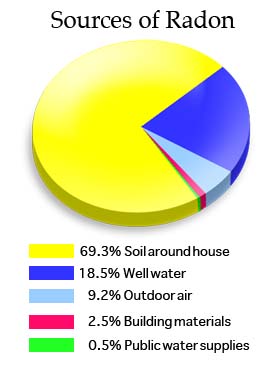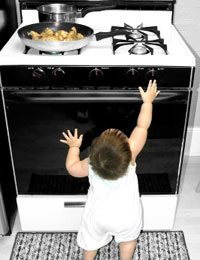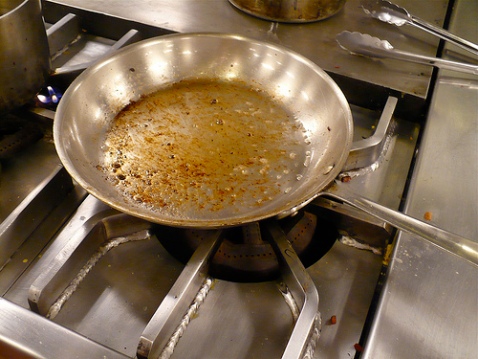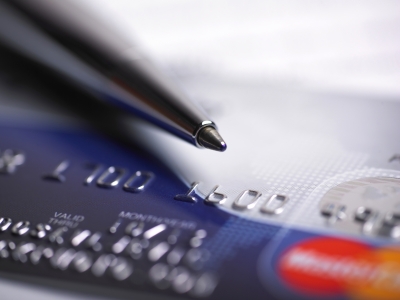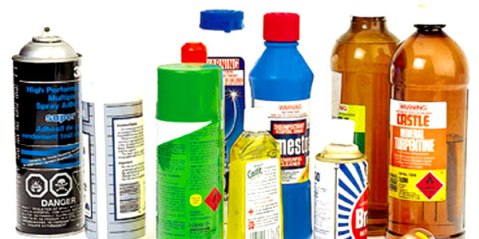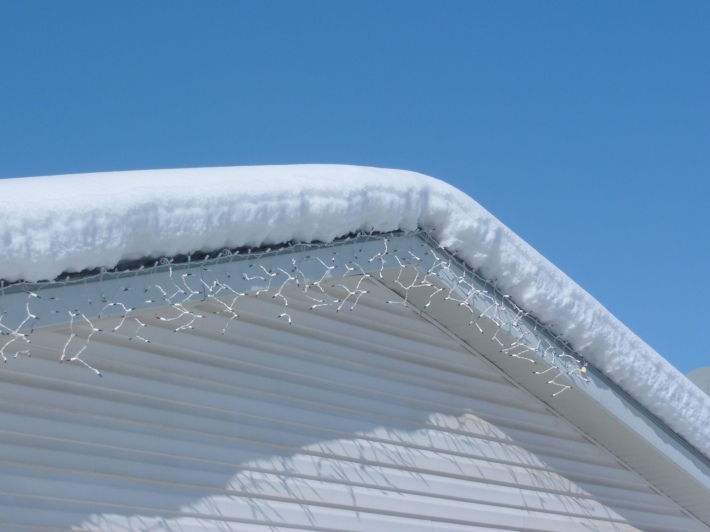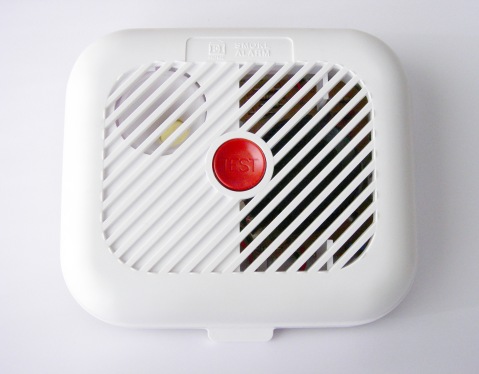Eliminate Radon Dangers in Your Home
Since you cannot see, smell or taste radon gas, it is not detectable in your home. So, why worry about radon? The National Cancer Institute reports that radon is the second-leading cause of lung cancer in the United States next to smoking.
The prevalence of radon is not isolated to one geographic area or type of home. In fact, one in every 15 homes has an elevated radon level, so it’s important for you to test and eliminate radon dangers at your residence.
What is Radon Gas?
Radon is a naturally-occurring radioactive gas produced by the breakdown of uranium in soil, rocks and water. Since the air pressure in a typical home is lower than the pressure in the soil around the foundation, the home acts like a vacuum and draws radon in through cracks in the foundation.
Radon may also be present in the water source and can be released into the air when water is used for general household purposes such as showering, or ingested when drinking. Testing for radon is the only way to determine if your indoor air quality and/or water are affected.
Testing for Radon
According to the EPA, radon gas levels can vary by day, season and geographic area. The radon levels can even be different in your home as compared to your next door neighbor’s home. Therefore, all potential homebuyers, current homeowners and home sellers should have their homes tested for radon.
The EPA recommends testing for radon under the following circumstances:
- The home was never tested.
- The home was tested more than two years prior.
- The home was renovated since it was last tested.
- You plan to occupy a lower level of the home than what was originally tested, such as the basement.
To test a home for radon, you can order a kit by mail from a qualified radon measurement service provider, purchase a radon kit from a local hardware store or hire a qualified radon tester (often also a home inspector).
If a radon test reveals that your home’s level is dangerous, you can install a radon mitigation system. A qualified radon reduction contractor can install a system in typically less than a day. If your home’s water source has high levels of radon, too, a point-of-entry treatment device can be installed to reduce emissions.
Ensure that your family is breathing easy by testing for radon and installing a radon mitigation system if the gas levels in your home are too high.
For more information on radon testing and your home insurance , contact your agent.
Keeping Babies Safe at Home
Many new parents worry about the dangers their little ones will face outside of the home; however, some of the greatest threats are lurking in the nursery, the kitchen and the bathroom within their homes. In fact, children between the ages of one and four are more likely to get injured by fire, burns, choking, poisoning or falling at home than by violence from a stranger.
To keep your little one safe as they grow, implement these safety precautions in your home:
Baby Safety Recommendations
Choking Prevention
- Put babies to sleep on their backs and keep toys, pillows and excess blankets out of the crib.
- Do not hang ribbons, strings or any items that can be grabbed over a crib.
- Do not give children toys that are not age-appropriate by always reading the manufacturer’s packaging to make sure that it is suitable for their age and ability level.
- Cut the loops of window blind cords into two pieces and place them out of your baby’s reach.
- Monitor your baby while they are eating, drinking or teething. Make sure he/she is upright and not crying when feeding solid foods.
- Mash or grind foods so they are soft enough to gum and swallow.
- Do not feed children peanut butter, popcorn, raw carrots, nuts, grapes or uncooked peas before age three because children often do not chew food before they swallow it.
Fall Prevention:
- Use safety gates at the base and top of staircases.
- Secure children with straps in high chairs, changing tables and strollers.
Poisoning:
- Remove medicines and medical supplies from easily accessible places around the house. Place these items out of your baby’s reach.
- Place cleaning products, alcohol and other poisons in a cabinet with a child safety lock.
- Identify household items that may be toxic to young children. (ex: Iron pills are the leading killer of children under age six).
Water Hazards:
- Place locks on your toilet lids and bathroom doors.
- Do not leave standing water in buckets for your child to access. Small children can drown in as little as two inches of liquid if they fall in.
- Set your water heater to less than 120°F to prevent accidental scalding, and use a water thermometer to test bath water before placing your child in the tub.
Keep your little ones safe every day of their young lives by keeping a close eye on them. For more information regarding baby safety, contact your pediatrician. For more information regarding home insurance, contact your agent.
Using Double-Handed Tools Safely
Even though they are small, hand tools can cause injuries, such as carpal tunnel syndrome, tendonitis and muscle strain. To avoid these injuries, use double-handled hand tools ergonomically and safely by doing the following:
 Use a tool with a grip of at least 2 inches when closed and no more than 3 ½ inches when open for power tasks.
Use a tool with a grip of at least 2 inches when closed and no more than 3 ½ inches when open for power tasks.- Use a tool with a grip span of no less than 1 inch when closed and no more than 3 inches when open for precision tasks.
- Use spring-loaded handle tools only.
- Avoid tools with dull edges or those without finger grooves.
- Select tools with soft material coating and non-slip surfaces.
- Always keep your wrists straight while using hand tools, and select those that can be used in either hand.
- Use tools with a handle longer than the widest part of your hand for high-force tasks.
For more information on tool safety and how it can affect your home insurance, contact your agent.
Taming Grease Flare-Ups
As grease accumulates, it can catch fire. This can expose you to unnecessary fire hazards while using burners, ovens and grills. Luckily, this potential danger is avoidable if the kitchen is kept clean.
- Keep all grilling surfaces clean and free of grease accumulation.
- Empty grease traps frequently and never allow them to overflow.
Learn how to use the class K fire extinguisher in your kitchen BEFORE a potential fire ignites!
Using Knives
Slicing and dicing in the kitchen?
Don’t get cut by being careless…
- Cut in the direction away from your body
- Keep your fingers and thumbs away from the cutting line
- Never grab a falling knife
- Never place a dirty knife in a sink full of soapy water
- Carry knives with the cutting edge angled slightly away from your body with the tip pointed down to your side
For more information on knive safety and how it can affect your insurance, contact your agent.
Managing Credit Card Debt
Your personal credit score is just as important as some of the other important numbers in your life…your blood pressure, your body mass index and your waist measurement. This number is based on personal credit management such as collection, length of credit history, types of credit cards used and applications for new credit. Financial institutions calculate your credit score, which determines what type of interest rate you will receive on a mortgage or credit card. Many other institutions are now using credit scores to calculate how high your health and auto insurance premiums will be as well.
Get Debt in Check!
Consumers who pay their balances on credit cards, pay mortgage payments on time and avoid late payments receive favorable credit ratings. This is important when considering how much you could pay in interest because you received a higher rate as a result of a low credit score.
Don’t despair. Even if your credit score is less than perfect, we’ve got some advice to get you back on track!
Tips for Those Who Want a Solid Credit Rating:
- Treat your credit cards like cash; deduct money from your checking account every time you make a purchase.
- Pay the entire balance of your credit card each month.
- Limit the usage of credits to two or three maximum and select cards with no annual fees, 25-day grace bill periods, rebate incentives or other incentives (airline miles, auto points, etc.) programs and single-cycle billing.
- Use your credit card with incentives for regular expenses such as groceries, utilities and gasoline.
- Conduct an assessment of your expenses quarterly and make adjustments to your spending if you are going over budget. Use a debit card only to curb spending.
Additional Tips for those who Need a Little Credit Boost:
- Enroll in a pre-paid credit card program in which you load money onto the credit card for purchases. Once you’ve reached your set limit, the card will not work.
- Establish a budget that includes a debt repayment plan monthly. As you pay off balances, call the creditor and ask them to close your account so that you are not tempted to use the card again.
Seek out financial assistance if you feel overwhelmed by debt. By reaching out to a financial advisor, you will be able to find specific ways in which you can minimize your debt and improve your personal financial situation. For more information on how this does affect your insurance, contact your agent.
Diminish Household Product Dangers
Some of the most dangerous drugs aren’t found out on the street, they are right under your kitchen sink. In fact, most common household products pose some danger if they are inhaled. Since the chemicals in inhalants enter the lungs in such high concentrations, they can have a more toxic affect than any other type of abused drug. Therefore, it is important to always follow the manufacturer’s instructions for safe use and to keep chemicals out of reach of children.
Dangerous Products
These products are just some of the household chemicals that pose a danger to you and your family if they are inhaled into your lungs:
- Gasoline
- Paint thinners and removers
- Glues and adhesives
- Spray paint
- Hair spray
- Deodorant spray
- Lighter fluid
- Nail polish remover
- Permanent markers
- Household cleaners such as glass cleaner, wood polish and soap scum remover
Symptoms and Health Effects
If you have inhaled a dangerous chemical, you may exhibit one or more of these symptoms:
- Spots or sores around your mouth
- Red or runny eyes and nose
- Dazed or dizzy appearance
- Nausea and loss of appetite
Over time, your body can suffer major health effects from inhaling household chemicals such as:
- Loss of memory and concentration
- Hearing loss
- Muscle spasms
- Permanent brain damage
- Death
For more information on household dangers, contact your insurance agent.
Keep Your Roof Clear of Snow
Snow can jeopardize the structural integrity of livestock shelters, barns and other farming structures if large accumulations are not properly cleared after a snowfall.
Removing built-up snow should be a top priority during winter months. Heavy, wet snow can cause roofs to buckle or collapse, which can result in serious injuries to people and animals.
There are several ways to remove accumulated snow safely:
- Remove the snow from open truss structures by increasing the heat inside.
- If the roof is flatter, remove the snow manually or hire a professional.
- Be aware of ice dams that can be invisible to the eye.
You see it on commercials all the time… sometimes accidents still happen. This is why it is highly recommended that you have protection under your home insurance policy to cover any damages that can occur. Contact your agent today for more information.
Smoke Detector Maintenance
Smoke detectors play an essential role in protecting the lives of the people you care about most. To keep your home safe:
- Install a working smoke detector on every level of the home, facility and any sleeping areas.
- Test all smoke detectors at least once a month.
- Replace your smoke detector batteries at least once a year, if not every six months. Try doing it at a consistent time each year, such as when resetting clocks in the fall or spring.
- Never disable a smoke detector that goes off while cooking. If the detector is not reactivated, the results could be costly.
For more information on how this affects your home insurance, contact your agent.
Stairs and Depression
Take Care on the Stairs!
Do you take the stairs? It doesn’t seem that risky but according to The American National Council on Compensation Insurance, falls are the second-most costly injury, making them more common than they appear! Whether using the stairs on the job or at home, practice the following safety tips to avoid a tumble:
- Always use handrails.
- Turn on lights when going up and down.
- Keep stairways free of clutter and debris.

- Before going up or down, check for worn or loose carpeting, or protruding carpet tacks.
- Familiarize yourself with the length of the staircase so you do not mistake the bottom step for a flat surface and lose your balance.
- Wear footwear with adequate traction to prevent sliding.
- Do not carry loads that block your vision. Instead, carry smaller loads that allow you see in front of you.
What to Do if You’re Feeling Blue
Everyone experiences sadness from time to time, especially after a loss or an upsetting event. Typically, these feelings tend to fade and life returns to normal. However, if sadness or the loss of interest in normal activities lasts longer than a few weeks, you may be suffering from depression.
Depression affects people from all walks of life, and if left untreated, can be debilitating. How do you know if you are depressed? Here are some common symptoms:
- Decreased energy levels
- Feelings of fatigue
- Irregular sleeping and eating patterns
- Difficulty concentrating, remembering things and making decisions
- Feelings of guilt, worthlessness and helplessness
- Chronic aches and pains that do not respond to medical treatment
If you think you are suffering from depression, do not allow it to control your home and work life. Get back on track by talking with your physician. For questions regarding your life insurance, contact your agent.

